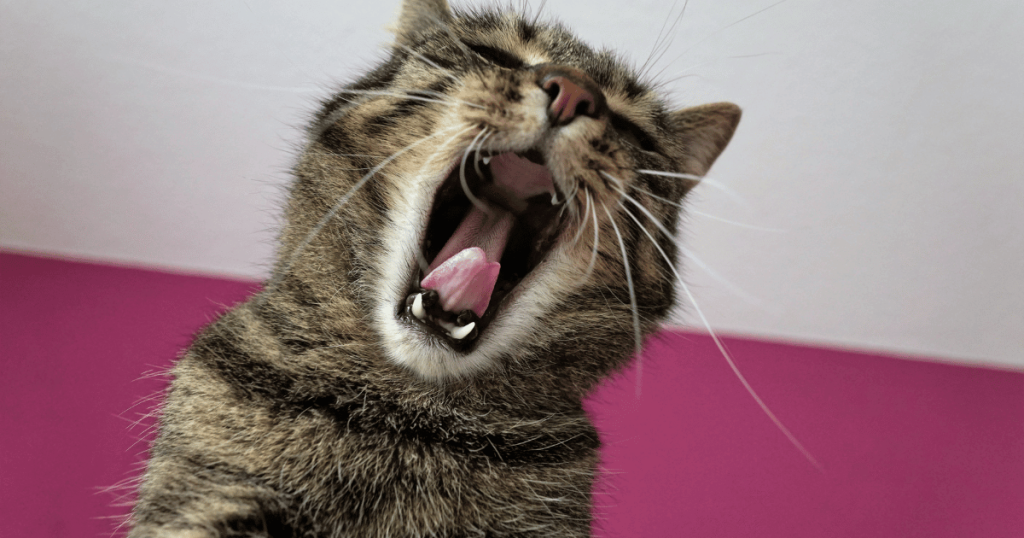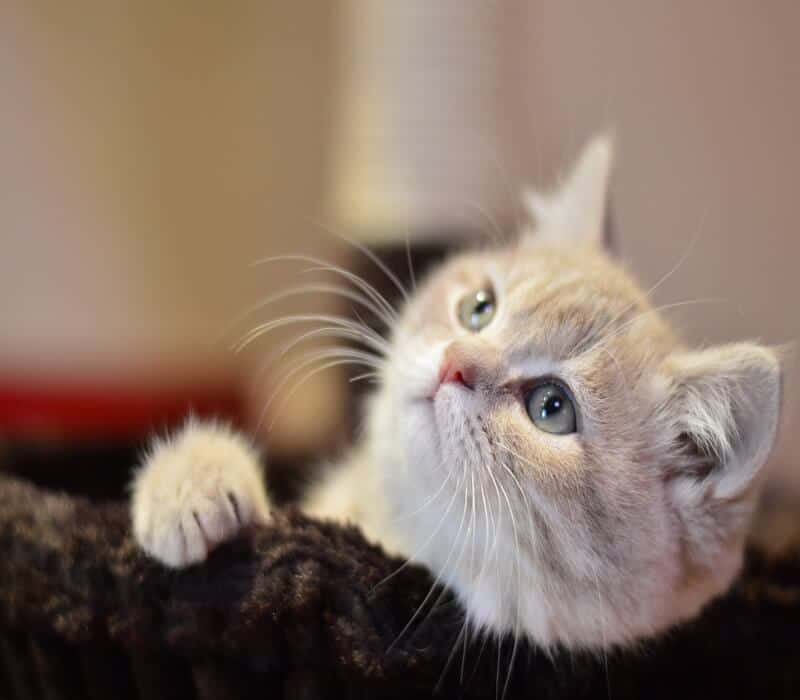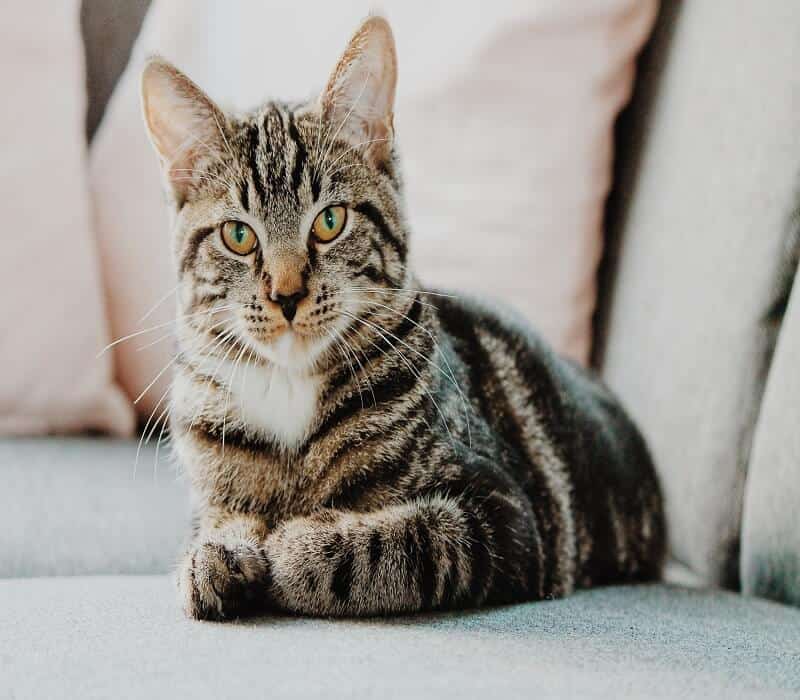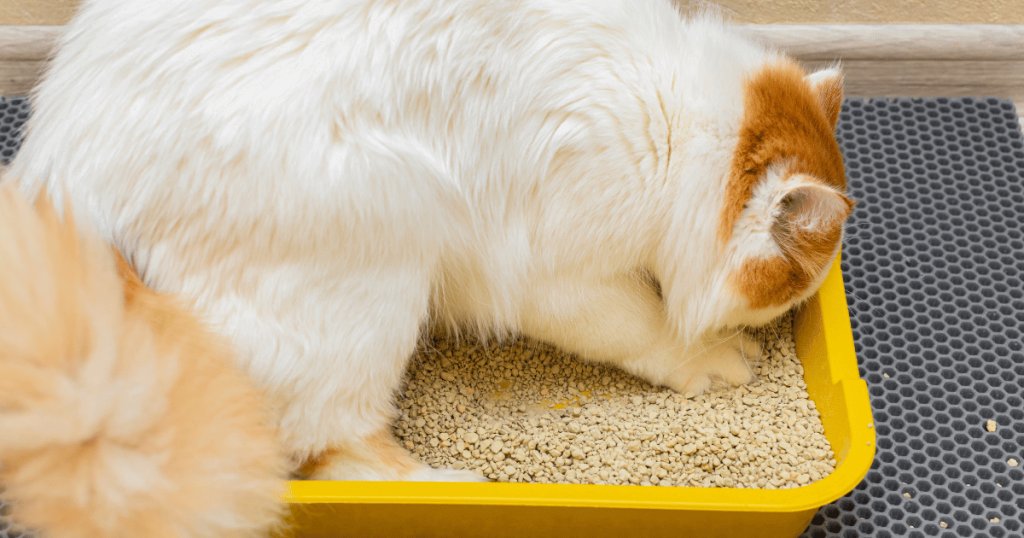
Dealing with a cat that plays in its litter box can be confusing for pet owners. It’s a strange behavior, but it’s not rare. This article helps you figure out why your cat might do this and gives easy tips to help them stop.
By understanding your cat better and making some simple changes, you can keep them happy and your home more peaceful. And this is what we aim to do with the tips below.
Key Takeaways:
- Providing a variety of toys and engaging in regular play sessions with your cat can help keep them entertained and divert their attention from the litter box.
- When changing to a new type of litter, do it gradually by mixing the new with the old. This helps your cat adjust without stress and reduces their curiosity about the litter box.
- In multi-cat households, ensure each cat has its own litter box plus one extra. This helps prevent territorial behavior that can be mistaken for playing in the litter box.
- Regular cleaning of the litter box is important. Keeping it clean discourages cats from spending too much time in it, which can sometimes be mistaken for playing.
- Consult a veterinarian if behavioral changes persist or if you suspect health issues. Sometimes behavior that looks like playing in the litter box can be a sign of a medical problem.
Effective Tactics to Discourage Your Cat From Playing in the Litter Box
Boosting Your Cat’s Playtime
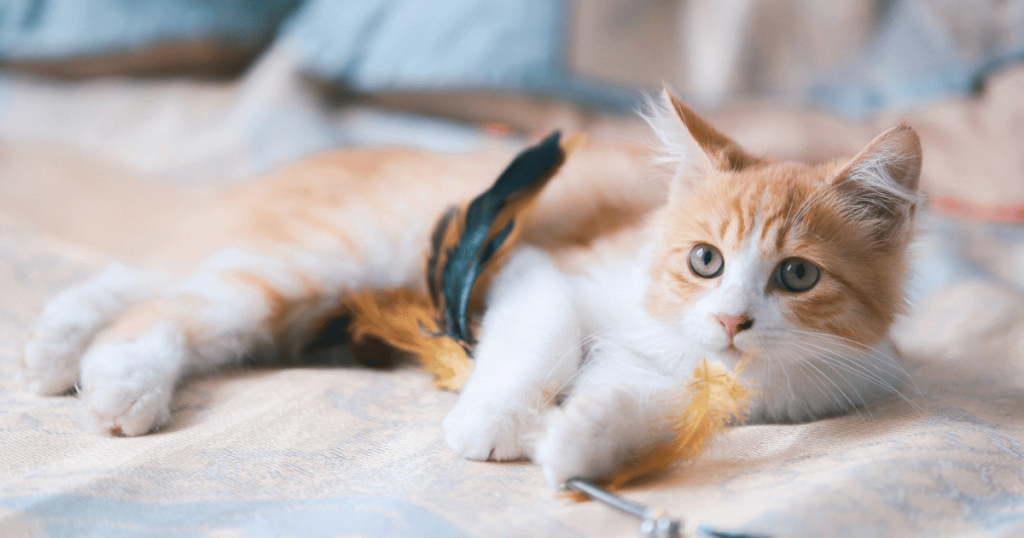
When cats linger in their litter boxes, it’s often a sign they need more engaging activities. The key is to provide a variety of toys that stimulate their natural instincts. Interactive toys, like feather wands, cater to their hunting behaviors, while puzzle toys offer mental stimulation.
To really make a difference, it’s important for cat owners to actively participate in playtime. Spending time playing with your cat not only diverts their attention from the litter box but also strengthens your bond.
These shared play sessions, even if brief, can significantly enrich your cat’s daily routine and discourage unwanted behaviors.
Smoothly Introducing a New Litter Type
Changing your cat’s litter type can disrupt their routine and prompt exploration, especially if the new litter feels or smells different from the old one.
Cats are creatures of habit, and a sudden change can make them investigate the new litter, sometimes in ways that resemble playing.
To ease this transition, start by mixing a small portion of the new litter with the old. Gradually increase the amount of new litter over several days or weeks. This gradual mix allows your cat to get used to the new texture and scent without stress, reducing their urge to ‘explore’ it inappropriately.
Ensuring Sufficient Litter Boxes for Every Cat
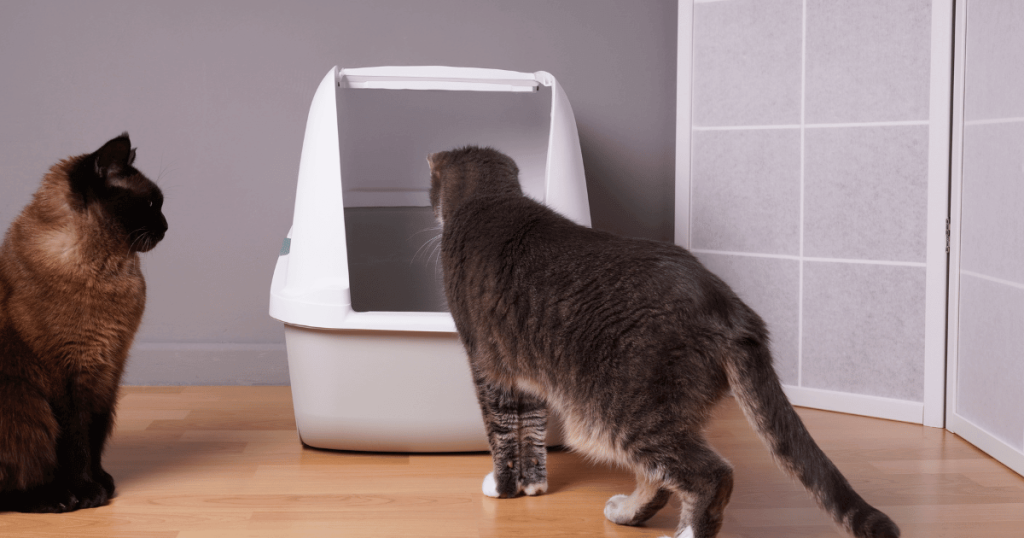
In a household with more than one cat, what seems like playing in the litter box can actually be a form of territorial behavior. Each cat should ideally have access to their own litter box, to prevent these issues. This arrangement ensures that each cat has its own space and reduces competition or stress over shared resources.
When cats feel they have enough resources, including litter boxes, they are less likely to engage in behaviors like guarding their litter box.
It’s also important to spread these boxes throughout the house to give each cat easy access and a sense of security in their own territory.
Regular Litter Box Cleaning
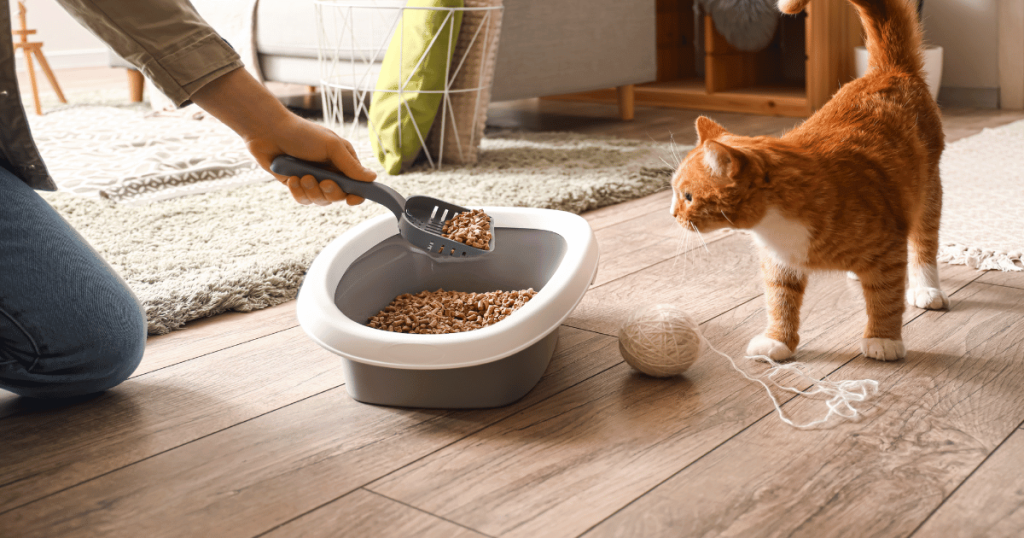
When a cat spends extra time digging or pawing in their litter box, it might look like playing, but in reality, this behavior might indicate discomfort with unclean conditions.
A dirty litter box can lead cats to excessively dig or shuffle the litter, trying to find a clean spot to use. Regular cleaning – daily scooping and frequent complete litter changes – helps prevent this.
Keeping the litter box clean and odor-free not only encourages proper use but also prevents these misinterpreted behaviors, ensuring your cat’s comfort and hygiene.
Preparing for a Pregnant Cat
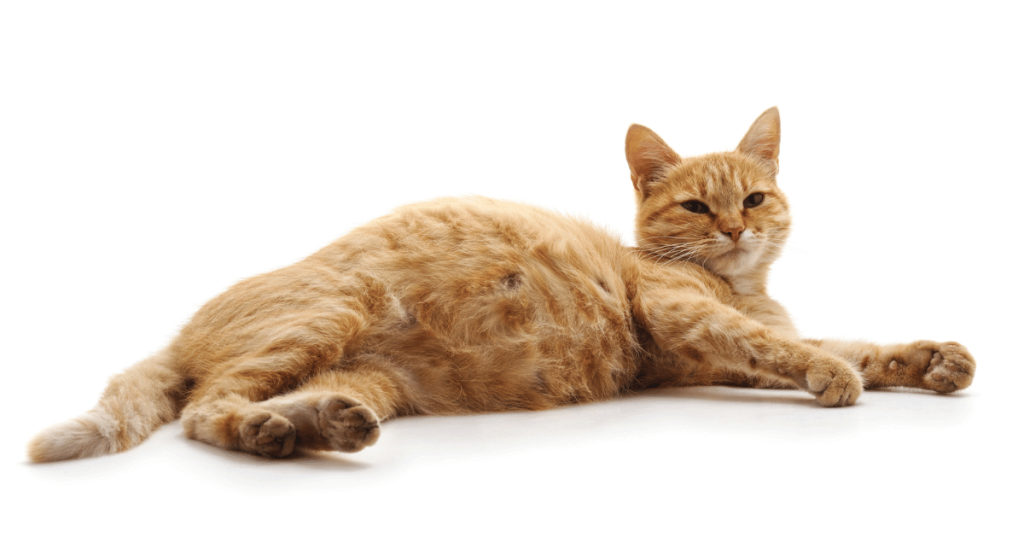
If your cat is pregnant, she might start exhibiting behaviors in the litter box that can be mistaken for play, such as digging or rearranging the litter. This is often a sign of nesting behavior.
To support your cat during this time, create a comfortable nesting area away from the litter box. Choose a quiet, secluded spot and line it with soft blankets or towels.
This designated nesting space can help your pregnant cat feel secure and reduce her inclination to nest in inappropriate places like the litter box.
Addressing Stress-Related Behaviors with Pheromone Therapy

If you suspect that stress or anxiety is driving your cat’s unusual behavior, such as spending excessive time in the litter box, pheromone therapy can be a helpful solution.
Pheromone diffusers and sprays emulate the natural calming signals that cats produce, creating a more relaxing environment.
When used consistently, these products can help alleviate stress-related behaviors in cats, encouraging them to use their litter box appropriately and avoid unnecessary lingering or ‘playing’ in it.
Consulting a Veterinarian for Potential Health Concerns

If the tips mentioned above don’t resolve the issue, or if you suspect underlying health concerns might be causing your cat’s litter box behavior, it’s crucial to consult a veterinarian.
Sometimes, what seems like playful behavior in the litter box can be a sign of medical issues such as urinary tract infections, digestive problems, or other health conditions.
A vet can conduct a thorough examination and provide specific advice or treatment.
Conclusion
I hope these tips offer the perfect solution for your cat’s litter box behavior. If you’ve found success with any of these methods, or have your own unique approach, please share your experiences in the comments. Your insights could help other cat owners facing similar challenges!
We're an affiliate
We hope you love the products we recommend! Just so you know, gameraround.com is a participant in the Amazon Services LLC Associates Program, an affiliate advertising program designed to provide a means for sites to earn advertising fees by linking to Amazon.com.

